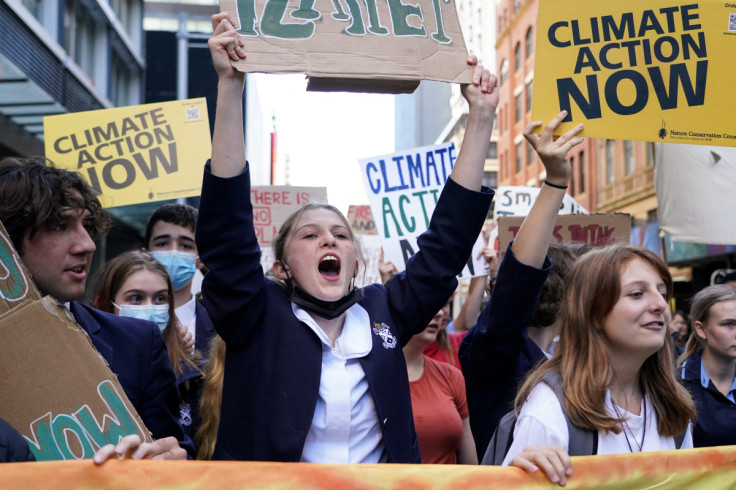What Sustainability Trends Should Businesses Be Watching In 2024?
As Starmer and Sunak focus their attention on winning election votes by tackling climate change, a series of sustainable trends will dominate 2024.

Last year, global temperatures increased to roughly 1.2 degrees Celsius – almost reaching the internationally agreed-upon global warming limit that currently stands at 1.5 degrees Celsius.
Climate experts have warned that if the global temperature were to surpass 1.5 degrees Celsius, the world would see worsening weather extremes and irreversible effects of climate change.
Since the climate crisis warnings, businesses have earned more consumers by focusing on sustainable trends.
Climate Change:
Climate scientists have warned that the average global temperature is expected to warm to at least 200 per cent more in the next 100 years, compared to the global warming rate in the 100 years leading up to 2024.
While ocean temperatures are expected to increase, experts have predicted that ground-level air temperatures will worsen more rapidly over land.
According to NASA, despite land temperatures proving more vulnerable to climate change, since 1998, all ocean basins have been experiencing a significant increase in temperature.
The National Aeronautics and Space Administration also said that the ocean currently holds 90 per cent of the heat that has been sourced by human-induced global warming.
As the ocean continues to get warmer, the world can expect to see sea levels rise – due to coral bleaching and thermal expansion.
The changes in the ocean's health and biochemistry will also be impacted by Earth's major ice sheets melting rapidly and intensified hurricanes – each sourced by the current climate crisis.
Clean Technology:
This year is the time to invest in clean technology - technology that supports the fight against environmental damage from existing technologies.
As cleantech also sets out to improve the environmental quality of polluted natural resources, according to S&P Global Commodity Insights forecasts, clean energy technology investments in 2024 will rise by 10 to 20 per cent, compared to that of 2023.
General Election:
The Labour Party and the Conservative Party have focussed their attention on winning votes in the next general election, set to be held before January next year, by tackling climate change.
As part of the Labour Party's 'The Green Transformation' policy, the left-wing campaign has pledged to prioritise being ambitious through science technologies, addressing the drivers of environmental degradation, as well as making high-quality housing, transport, energy, and food more affordable and accessible.
In a bid to win UK leadership, the Conservative Party has urged potential voters to trust in their abilities to deliver on Net Zero.
Although Prime Minister Rishi Sunak was slammed for back-tracking on the zero-emission goals, the right-wing party has pledged to ease the transition to electric vehicles from 2030 to 2035 and to give low-income households more time to transition to affordable heat pumps.
The Tories have also said that they will scrap expensive energy efficiency requirements and will controversially continue to support digging new oil and gas in the North Sea.
With a mass focus on sustainability and tackling the current climate crisis, considering the UK is a world leader in reaching Net Zero by 2050, this year's leadership vote will inherently have a huge impact on everyone's environmental future.
Sustainable Investments:
By highlighting the importance and impact of sustainability, companies will be able to boost investment and traction.
As people are becoming increasingly aware of the environmental impact of their choices, the call for eco-friendly products has increased dramatically.
In 2020, a McKinsey US Consumer Sentiment Survey found that more than half, 60 per cent, of respondents said that they would pay more for a product that has sustainable packaging.
Another survey, conducted by NielsenIQ, revealed that 78 per cent of respondents said that having a sustainable lifestyle is important to them.
The Anti-ESG Movement:
The threat of the anti-ESG movement will also ease throughout 2024, according to CPG executives.
Throughout 2023, companies were slammed for "greenwashing" their consumers - promising misleading claims about the environmental impact of products. It has since been predicted that there will be fewer investments in financial institutions that pledge to "boycott" fossil fuel and firearms industries on ESG grounds.
The waning threat of the anti-ESG movement will also bring fewer restrictions on asset management companies – experts say.
© Copyright IBTimes 2025. All rights reserved.






















